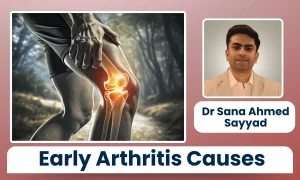If you’ve suffered from the aftereffects of acne, you may be wondering whether you can get acne scar treatment. You might think that these procedures can only be used for severe acne scars, but in reality, there are many different treatments available for acne scars of all levels. These procedures address pigmentation scarring, textured scars, and uneven collagen distribution. In fact, some treatments are even appropriate for people with a combination of different types of scars.
Although acne scars remain unsightly long after an outbreak, there are now several treatment options available to help minimize the appearance of scarring. Scar treatment is available for all skin types, and a doctor’s expertise will determine which treatment is right for you. A variety of chemical peels can help reduce the appearance of dark spots and post-inflammatory hyperpigmentation. Chemical peels can also help shrink enlarged pores. Whether you choose chemical peels or other treatments, you should consult with a dermatologist for the right option.
The defining characteristic of a keloid is the extent to which the healing process of the skin is excessive. In some cases, keloid scars extend beyond the area of initial injury. On the other hand, hypertrophic scars are typically characterized by thick clusters of scar tissue and do not go beyond the boundary of the injury. Acne scars can range from deeply pitted to raised or angular in appearance.
A popular treatment for acne scarring is platelet-rich plasma therapy. It uses the key components of your own blood, including growth factors and platelets. These are then extracted and applied topically, where they can enhance the results of HALO laser and microneedling. When applied to the affected areas, these concentrated platelets jumpstart the body’s self-healing process, promoting collagen production. This type of treatment is ideal for people who want to get rid of acne scarring and minimize the downtime that comes with it.
Another popular treatment for acne scars is radiofrequency treatment. This procedure involves multiple treatments to produce collagen and remodel sunken acne scars. During this procedure, the patient will experience mild redness for up to two days. It may not be a permanent solution, but it is a viable option to get rid of acne scars without taking time off from work or school. And since you won’t be required to take time off work, radiofrequency treatments are popular and effective.
Some acne scars may get better with age. Generally, post-inflammatory hyperpigmentation fades as skin cells replace damaged ones. However, atrophic or depressed scarring may not improve with age. If you have a depressed scar, you may not notice any improvement and the scar will look worse over time. Most people find that acne scars become worse with age. This is a common problem for many people.
A dermatologist is the most appropriate person to handle your acne scar problems. They can offer you the most effective treatment available for your particular condition. And if you’re looking for acne scar treatment, you’ve come to the right place. Metro Dermatology can provide you with a consultation to help you make a decision. There are many methods to get rid of your scars. You may be surprised to know that some of them are easier to remove than others.







More Stories
Acne Management for Remote Workers: How Your Home Environment Is Your Skin’s New Boss
Acne-Safe Makeup and Skincare for Gender-Affirming Hormone Therapy
Adapting Acne Routines for Extreme Climates: Desert Dryness vs. Tropical Humidity